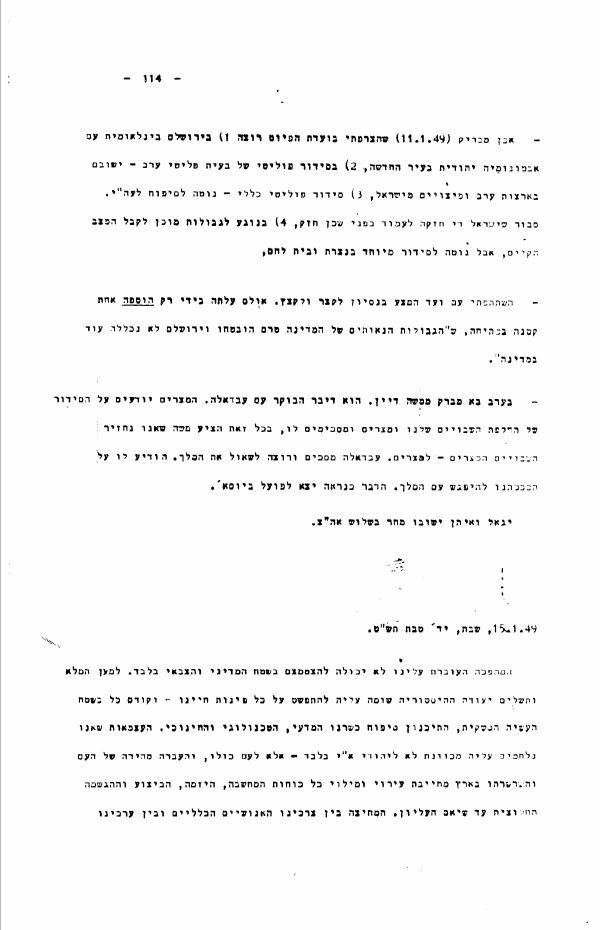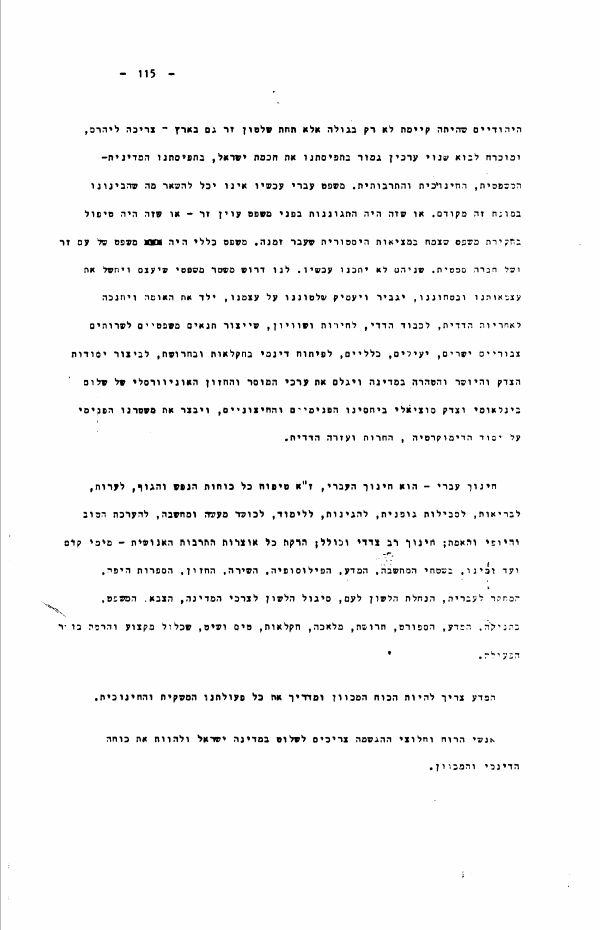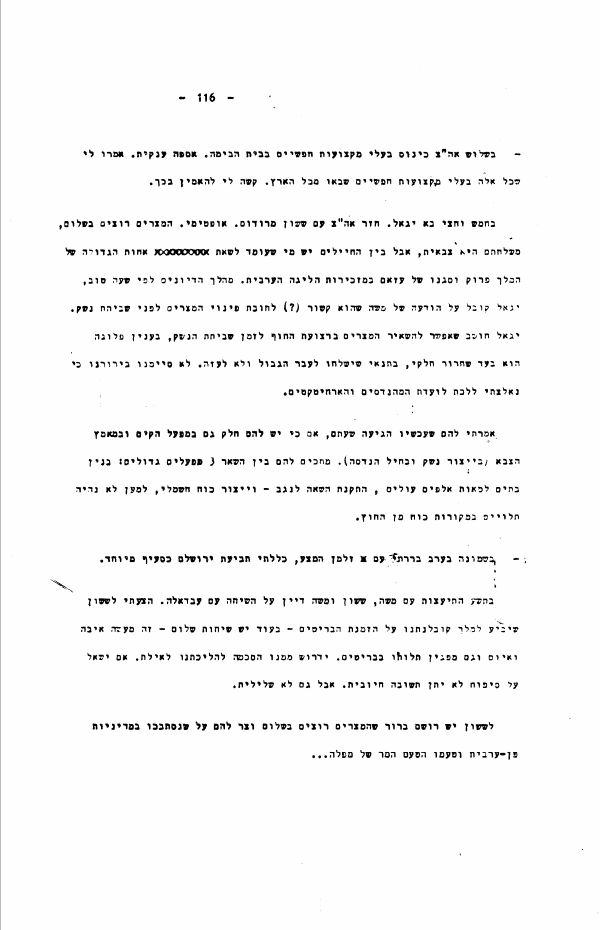Saturday, January 15, 1949
[Notes in preparation for a lecture at a conference of independent professionals (lawyers, accountants, architects, etc.)]:
The revolution we are undergoing cannot be reduced to the political and military arena alone. In order to fulfill and complete its historic purpose, it must spread to all corners of our lives - and first of all to the area of economic production, to planning, to the cultivation of our scientific, technological, and educational skills. The independence we are fighting for is directed not only at the Jews of Eretz Israel - but at the entire [Jewish] People, and the rapid transfer of the People and its enrooting in the country requires the infusion and inclusion of all our powers of thought, initiative, execution, and halutzi [Zionist pioneering] actualization to their utmost.
The division between our overall human needs and our Jewish needs, which existed not only in the Golah [place of exile, i.e., Diaspora] but also under foreign rule in this country, needs to be destroyed, and there must be a complete change of values in our conception of the wisdom of Israel, in our political-legal, educational, and cultural conception.
Hebrew law can no longer remain what we understood this term to mean previously. It was either a means of defense against a hostile foreign legal system, or an investigation into a body of law that emerged from a historical reality whose time has passed. General law was the law of a foreign people and a static society. Neither of these is feasible now. We need a legal system that will empower and fortify our independence and security, enhance and enrich our rule over ourselves, unite the nation and teach it mutual responsibility, mutual respect, liberty and equality; create the legal conditions for honest, effective, inclusive public services for dynamic development in agriculture and industry, for the fortification of the foundations of justice and integrity and purity in the state; and embody the moral values and universal vision of international peace and social justice in our internal and external relations, and ground our domestic system of government in a foundation of democracy, liberty, and mutual assistance.
Hebrew education is the education of the Hebrew person, that is, the cultivation of all the powers of mind and body for the sake of awareness, health, physical stamina, decency, learning, the capacity for action and thought, appreciation of the good and the beautiful and the true; a multifaceted and inclusive education; the rendering of all the highlights of human culture - from ancient times to our times, in the fields of thought, science, philosophy, poetry, envisioning the future, literature, and research - into Hebrew; endowing the People with the [Hebrew] language; adapting the language to the needs of the state, the army, the law, technology, science, sport, industry, craftsmanship, agriculture, aeronautics and seamanship, professional improvement, and agency.
Science needs to be the force that directs and guides all our economic and educational activity.
The philosophers and the halutzim [Zionist pioneers] of actualization need to govern the State of Israel and serve as its dynamic and guiding force.
- At 3 p.m. the conference of independent professionals at Beit HaBima. A huge gathering. I was told that these are all independent professionals who came from across the country. It's hard for me to believe this.
- At 5:30 Yigael [Yadin] came. He and [Eliahu] Sasson returned from Rhodes this afternoon. [He's] optimistic. The Egyptians want peace, their delegation is military, but the soldiers include someone who's about to marry King Farouk's older sister, and ''Azzam [Pasha]'s deputy in the Arab League. At present the talks are proceeding well. Yigael is complaining about Moshe [Sharett]'s announcement that he's connected (?) [question mark in the original] to the Egyptians' obligation to withdraw before the armistice. Yigael thinks that it's possible to leave the Egyptians in the coastal strip during the armistice. Regarding Faluja he favors partial release, on the condition that [those released] are sent across the border and not to Gaza.
We didn't conclude our consultations because I had to go to the committee of engineers and architects.
I told them that now their time has come, although they also played a part in the existing enterprise and the military effort (in weapons production and the Engineering Corps). Among other things, 3 major enterprises await them: building houses for hundreds of thousands of immigrants, installing irrigation in the Negev, and the production of electric power, so that we won't be dependent on power sources from abroad.
- At 8 p.m. I reviewed the platform with Zalman, [and] I inserted the demand for Jerusalem as a special clause.
At 9 a consultation with Moshe [Sharett], [Eliahu] Sasson, and Moshe Dayan on the conversation with [King] Abdallah. I suggested to Sasson that he inform the king of our objection to the British being invited - as long as peace talks are underway. This is an act of hostility and a threat, and also demonstrates his dependence on the British. He'll request his [the king's] agreement to our going to Eilat. If he's asked about annexation, he won't give an affirmative answer, but will not give a negative one either.
Sasson has a clear impression that the Egyptians want peace and they regret becoming embroiled in pan-Arab policy and the bitter taste of defeat…











